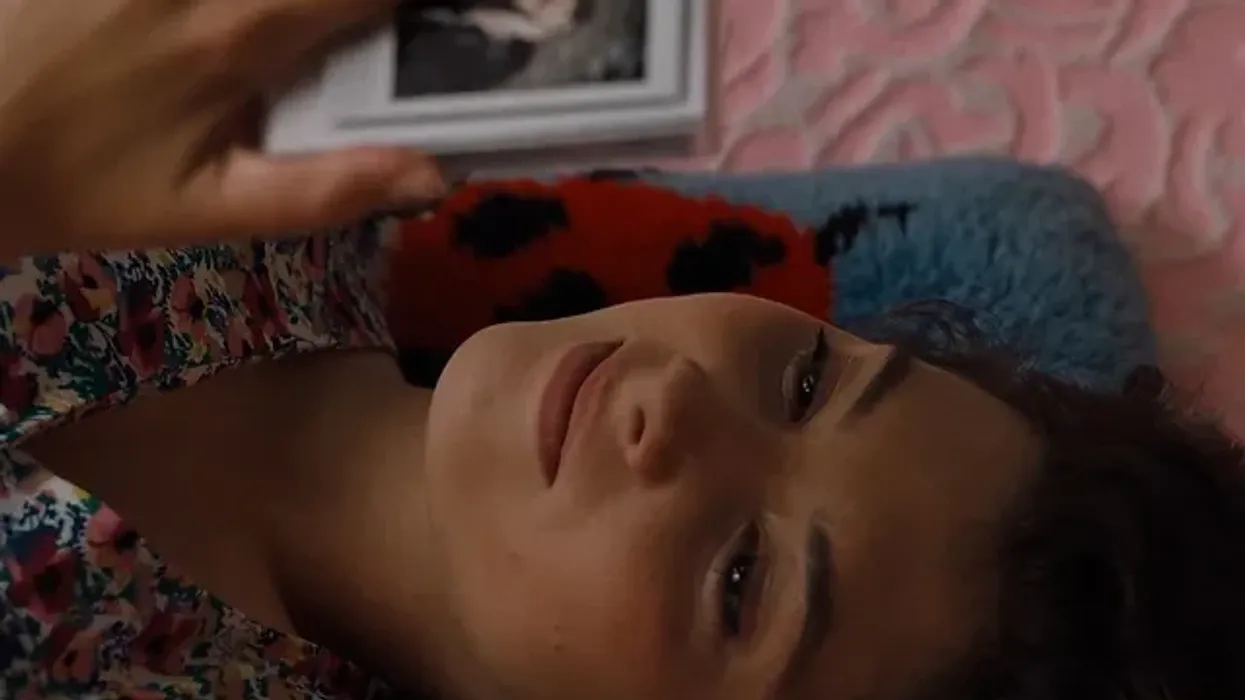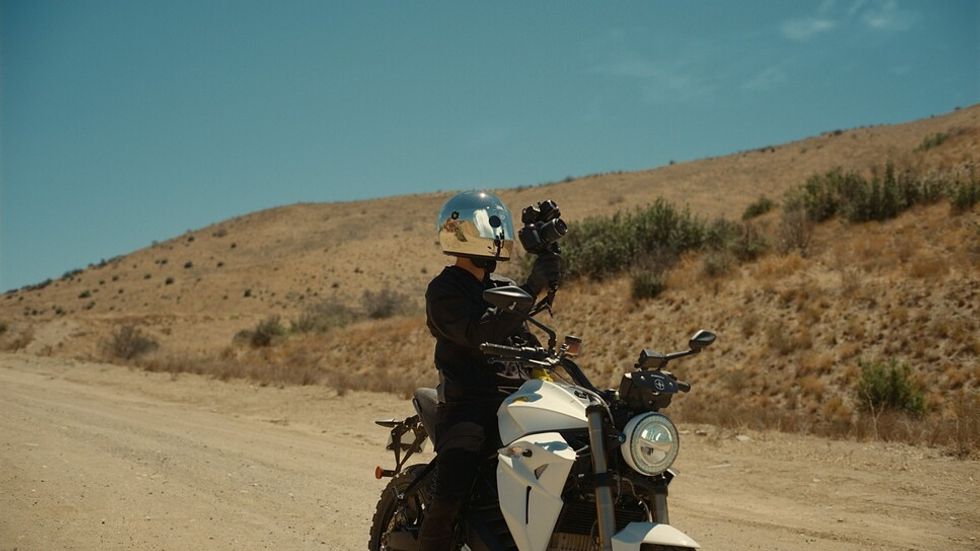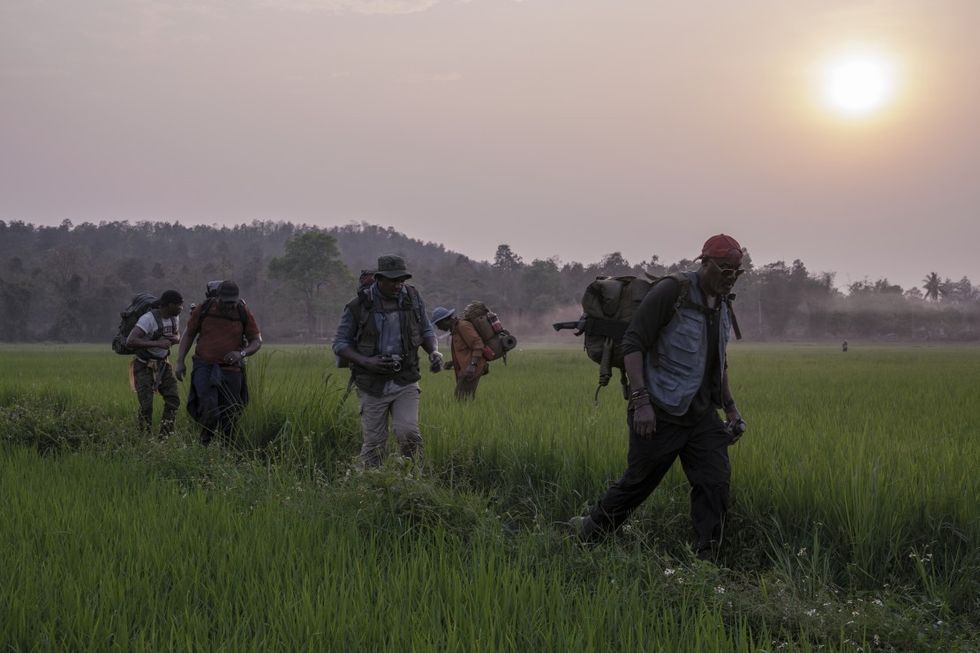How I Turned My Family Into Film Characters
Filmmaker Mirjana Mimi Vlaovic shares how she transformed her family into characters for her short film, Your Guardian.

'Your Guardian'
This post was written by Mirjana Mimi Vlaovic.
The advice I heard the most starting out my career as a writer/filmmaker was “Write what you know.” Maybe the reason I heard it so much was that "what I knew" couldn’t interest me less. A bit like Little Women’s Jo, my first works were about magical kingdoms, fairies, or some rom-com replica of fancy people with fancy jobs, leaving most people unimpressed. Writing was my escape from reality, and I didn’t want or know to dig into those shadowy areas of my psyche.
Years passed and I moved to London (instant depression potential), adulting hitting hard, and writing became a self-consciousness cringe-fest.
A family anecdote of my mum trying to leave the country in the '90s kept circling my mind. I soon realized that her attempt happened at the age of 22, the same age I was when I moved abroad. Transgenerational pattern triggered. I wished to understand what went wrong and how that impacted me, but I knew that this exploration would be out of my comfort zone.
However, I thought it might be a good opportunity “to write what I know” for the first time. Because if I know something, I know my family, right?
Research and Writing
There were three big characters in the story of my mum’s unsuccessful immigration–my mum, my dad, and my grandpa. I was lucky enough to be able to talk to all of them about it. Boom. Rashomon. Three different stories.
At first, I got dizzy but then I realized that these differences were creating the uniqueness of their characters’ point of view. It is how each of them perceived the event looking back. This conflict of facts is fertile ground.
But I still didn’t grasp who were my parents at the age of 22. I grew up listening about these ideal creatures and always felt like I could never live up to their immaculate younger selves. From a grown-up perspective, these anecdotes sounded a bit like fairy tales, and I decided to ask more specific questions, about little things. It was easier for them to talk about what they wore and listened to than to explain their decision-making process. These were also visual tangible things that were easy to transport to the film.
I started gathering the mood. I listened to Yugoslav music from the early '90s, I watched their favorite films of the time, and I made a big reference board.
Then, I discovered that all recorded materials were golden. Some of the mixtapes they made for each other, and old video recordings instantly broke their idealist personas for me. In recordings, it was much easier to analyze them like characters, with every frown, sigh, and smile being accentuated. I was surprised by how much of myself I saw in them. In these Top Gun meets Flashdance personas, I found my own insecurities, fears, and dreams. Putting myself into their shoes felt natural nowCasting

'Your Guardian'
Credit: Mirjana Mimi Vlaovic
Casting my “parents” was one of the weirdest things I’ve ever done.
I structured my casting briefs like this: everyone got the same synopsis, plus a paragraph written from the perspective of a character they’re auditioning for. I also chose one reference photo per character that set the character’s vibe and energy.
There were no free-casting databases in Serbia, so I stalked actors on social media instead. Group photos of cohorts from different academies were the best resource, along with the videos of some of their rehearsals/exercises.
I chose 20 actors and was delighted that all of them agreed to participate in the casting. They mentioned how rare it is to get fruitful briefs like these, so it seemed worthwhile to make these documents more personalized and creative.
As I was in London at the time, I decided to do a self-tape round first.
Talking with the top two choices for each role, I discovered some amazing similarities between them and my parents that felt quite important and symbolic. But I needed to remind myself that it wasn’t at all important if they shared my parents’ interests and zodiac signs (don’t judge me), it was important that:
- Our communication was good and fluent
- They found their own connection to this story
- They had the charisma that could make others interested in the story we would tell together
- It is believable that they could have lived in the era we are portraying (1992 Yugoslavia)
Listing these objectives made it easier to choose, and casting the right people made me believe that this project was on a good track.
My favorite part of the process was when my two leads and I listened to Čuvam noć od budnih together, rehearsed the scenes, and talked about our own families during our crowdfunding campaign. Miraculously they picked up on the energy I felt while writing and provided amazing results.
The shoot itself was tough, we had so little time and if it wasn’t for the elaborate preproduction and a competent cast and crew it would have been impossible to create the film we did.
Seeing people from multiple cultural backgrounds feel this personal story, having them breathe, laugh, and cry with my family, really made everything worth the struggle. So, I guess “write what you know” is a piece of good advice after all. I would just add, “Write what you know once you feel it’s the right time,” because there’s no reason to force yourself into any introspection you are not ready for.
Pace it and good luck if you decide to head on a similar adventure!
This post was written by Mirjana Mimi Vlaovic.
Mirjana Mimi Vlaovic is a Belgrade-raised, London-based genre filmmaker who’s worked on over 50 short films in different departments.
Her latest writing and directing work is a short film Your Guardian which premiered at the BFI, screened at 12 festivals around the world, and has won seven awards so far. With this film, she got shortlisted for the Young Director Awards in Cannes this year.
- 11 Tips to Spice up your Character Bios (FREE Character Bio Template) ›
- Why Is Every Family on TV So Dysfunctional? ›
- The Difference Between Sex Scenes on TV and Adult Films | No Film School ›























